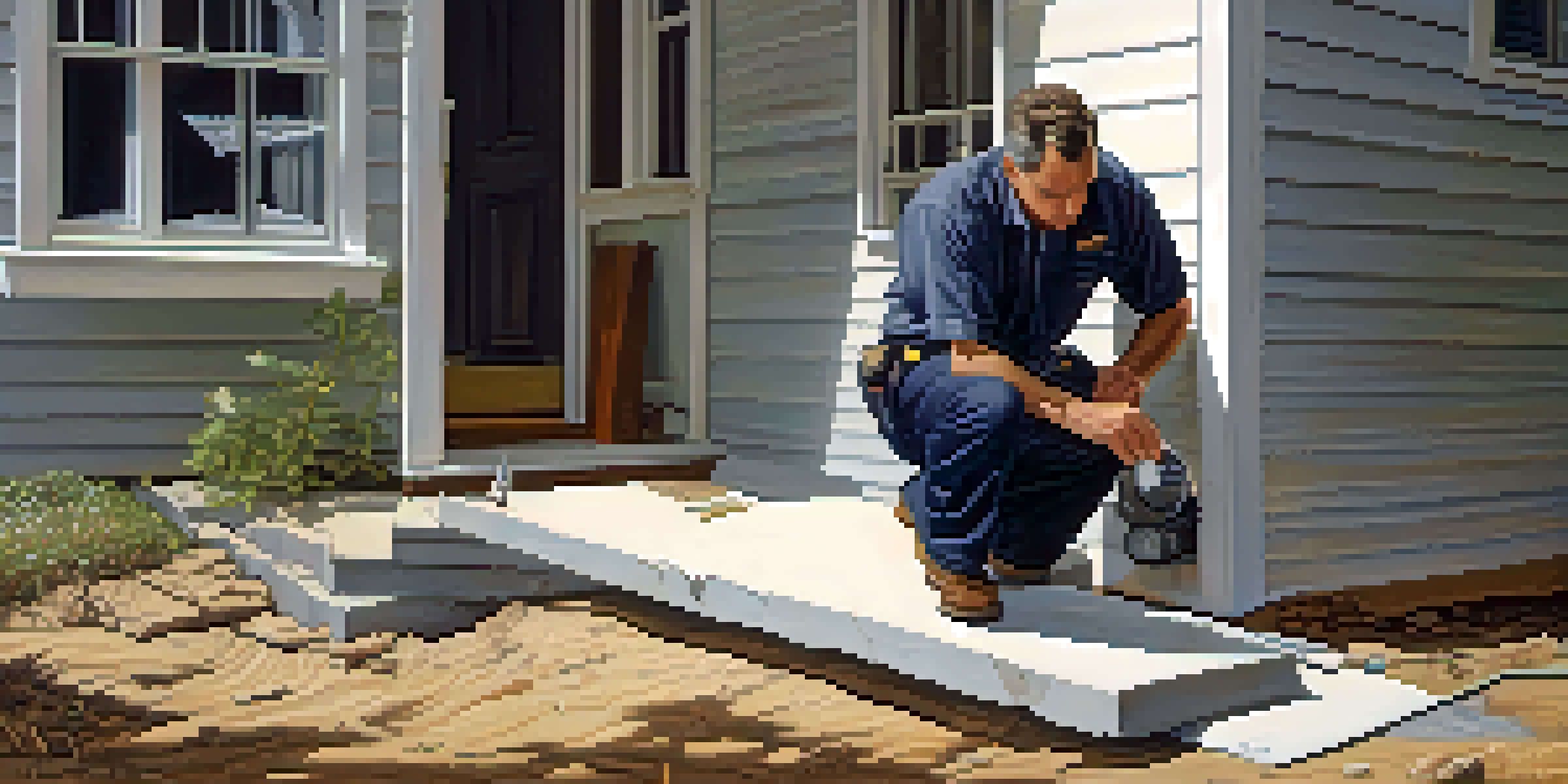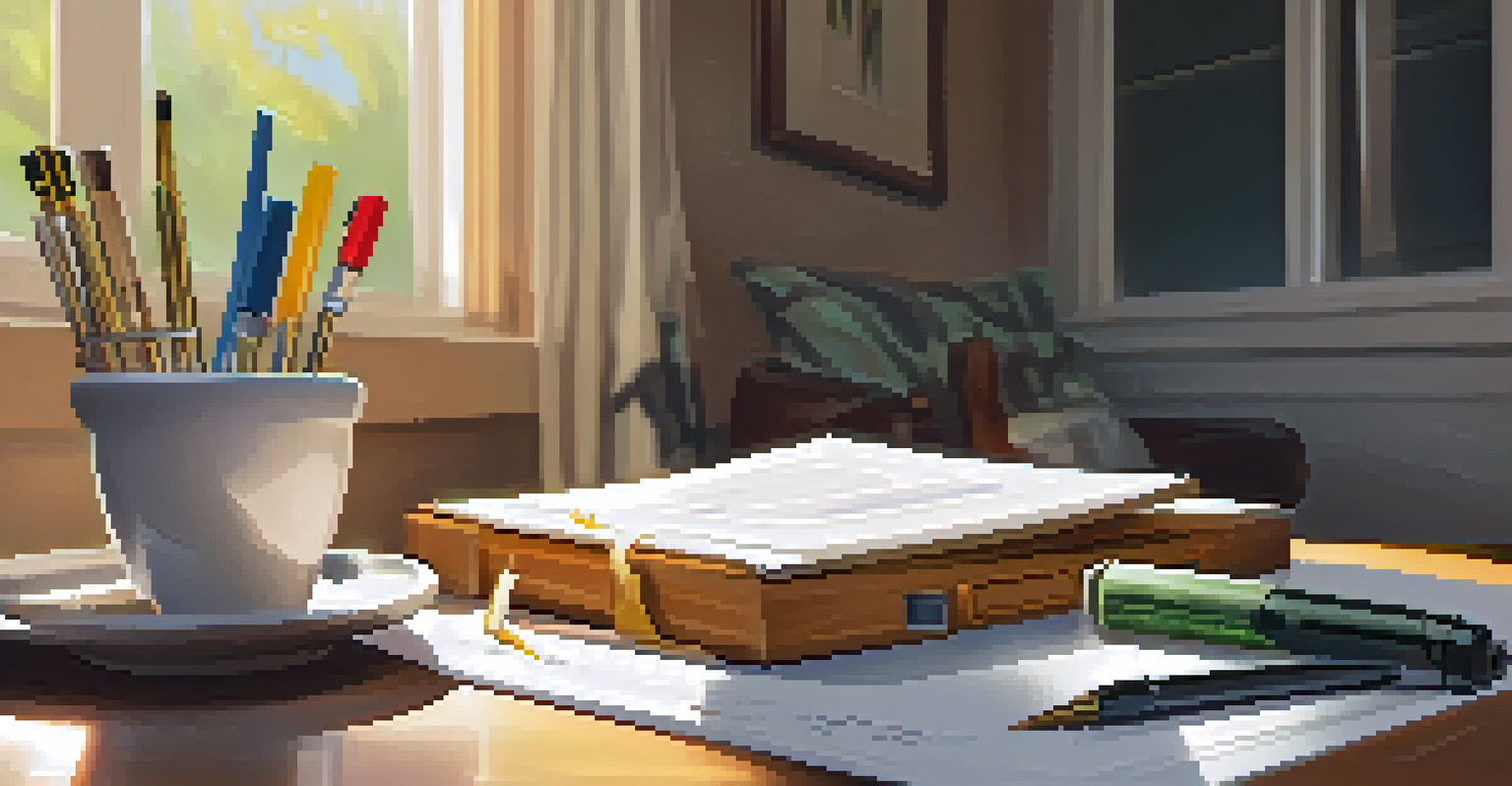Home Inspector Ethics and Professional Standards

What Are Home Inspector Ethics and Professional Standards?
Home inspector ethics and professional standards serve as the backbone of the home inspection industry. These guidelines help ensure that inspectors conduct their work with integrity, honesty, and fairness. By adhering to these standards, inspectors can build trust with clients, which is essential in a field that deals with such significant investments.
Integrity is doing the right thing, even when no one is watching.
These ethics are not just a set of rules; they reflect a commitment to the profession and the public. Home inspectors are often faced with challenging situations where their judgment can significantly impact a client's decision. Hence, understanding these standards is crucial for maintaining professionalism and accountability.
For instance, if an inspector discovers a serious issue in a home, ethical standards compel them to report it honestly, regardless of the potential fallout. This level of transparency helps clients make informed choices and reinforces the inspector's reputation as a reliable professional.
Importance of Transparency in Inspections
Transparency is a cornerstone of ethical home inspection practices. Clients deserve to know exactly what they are purchasing, and inspectors must provide clear, unbiased reports that reflect the home's condition. This means openly communicating any issues or potential problems discovered during the inspection process.

When inspectors prioritize transparency, it not only protects the clients but also safeguards their own reputation. A transparent inspection fosters trust, encouraging clients to seek their services again in the future or recommend them to others. This can lead to a more successful career built on referrals and repeat business.
Ethics Build Trust in Inspections
Home inspector ethics ensure integrity and transparency, helping to build trust with clients.
For example, if an inspector finds mold in a basement, they must inform the client without sugarcoating the situation. While it might be tempting to downplay the issue to avoid scaring the client, ethical practice requires full disclosure to ensure informed decision-making.
The Role of Professional Associations
Professional associations play a vital role in establishing and promoting ethical standards within the home inspection industry. Organizations like the American Society of Home Inspectors (ASHI) provide guidelines and resources that help inspectors navigate their responsibilities. Membership in these associations often requires adherence to a strict code of ethics, further enhancing professional credibility.
Honesty is the first chapter in the book of wisdom.
These associations also offer training and continuing education opportunities, ensuring inspectors stay updated on the latest industry standards and practices. This commitment to ongoing learning not only improves the quality of inspections but also reinforces the inspector's ethical obligations.
For instance, an inspector who participates in regular training sessions through a professional association is more likely to stay informed about new regulations and best practices. This knowledge equips them to deliver higher quality service while adhering to ethical standards.
Understanding Conflicts of Interest
Conflicts of interest can undermine the integrity of a home inspection. A situation arises when an inspector has a personal or financial stake in the outcome of the inspection, which may bias their report. Recognizing and avoiding these conflicts is essential for maintaining ethical standards in the profession.
For example, if an inspector is also a real estate agent, they may face pressure to overlook certain issues to close a sale. This scenario highlights the importance of keeping professional roles separate to ensure fair and impartial inspections.
Transparency Protects Inspectors' Reputations
Clear communication about inspection findings fosters trust and encourages repeat business.
Inspectors must be transparent about any potential conflicts with their clients and should seek to eliminate them whenever possible. By doing so, they uphold their ethical standards and reinforce their commitment to providing honest assessments.
The Impact of Ethical Violations
Ethical violations can have serious repercussions for home inspectors, including loss of credibility and legal consequences. If an inspector is found to have misrepresented a property's condition or failed to disclose significant issues, they risk facing lawsuits or disciplinary actions from professional associations. This can tarnish their reputation and jeopardize their career.
Moreover, when clients discover unethical behavior, it can lead to negative reviews and damage a business's reputation. In today's digital age, word-of-mouth spreads quickly, making it even more critical for inspectors to adhere to ethical standards consistently.
For instance, an inspector who fails to disclose a significant foundation issue may face backlash from the client when the problem arises after purchase. This not only affects their relationship with that client but can also dissuade potential clients from hiring them in the future.
Educational Resources for Ethical Practices
To ensure the highest ethical standards, home inspectors should take advantage of educational resources available to them. Many professional organizations offer training programs, workshops, and online courses focused on ethics and best practices. These resources help inspectors stay informed and equipped to handle various situations they may encounter.
Additionally, reading industry publications and joining forums can provide valuable insights into the latest trends and developments in home inspection ethics. Engaging with peers in the field allows inspectors to share experiences and learn from each other's challenges.
Professional Associations Enhance Standards
Joining professional associations provides inspectors with guidelines and training to uphold ethical practices.
For instance, attending a workshop on ethical decision-making could help an inspector navigate dilemmas they might face during inspections. This continual education fosters a culture of professionalism and accountability that benefits both inspectors and their clients.
Conclusion: Upholding Ethical Standards in Home Inspection
In conclusion, home inspector ethics and professional standards are crucial for establishing trust and credibility in the industry. By prioritizing transparency, avoiding conflicts of interest, and engaging with professional associations, inspectors can uphold these essential guidelines. This commitment not only benefits their careers but also protects clients and enhances the overall integrity of the home inspection profession.
As the real estate market continues to evolve, the importance of ethical practices will only grow. Home inspectors must remain vigilant in their adherence to these standards to ensure they provide the best service possible while fostering trust within the community.

Ultimately, upholding ethical standards is not just about following rules; it's about cultivating a reputation for integrity and professionalism that can lead to long-term success in the field.